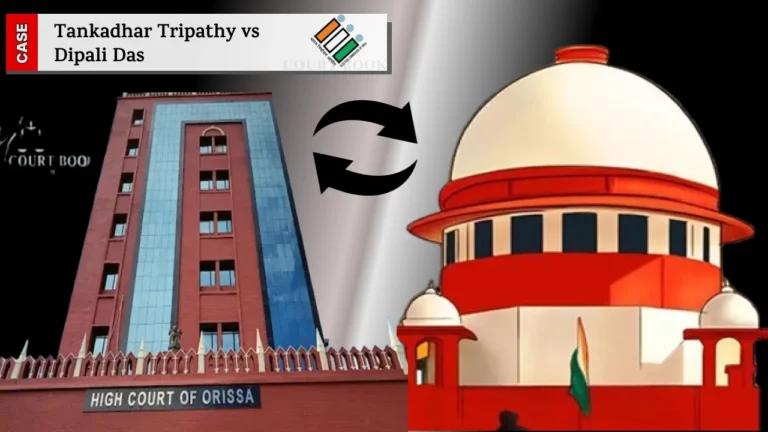The Supreme Court on Friday directed the Orissa High Court to reconsider an election petition filed against Tankadhar Tripathy, who was declared elected from the Jharsuguda Assembly seat in the 2024 Odisha polls. The case was brought by Dipali Das, the runner-up, who alleged that Tripathy failed to make full disclosures of his assets and criminal cases, and also pointed to discrepancies in the electronic voting machines (EVMs).
Delivering the judgment, a Bench of Justice Surya Kant and Justice Joymalya Bagchi observed that the High Court had not fully examined whether the affidavit filed by the petitioner under Form 25, as required by the Representation of the People Act, 1951, was compliant. The apex court stated,
Read also:- Kolkata Lawyers Stage Court Boycott Following Brutal Police Attack on Advocate
"It is necessary for the High Court to identify the specific defects in the affidavit and assess whether these were curable or fatal to the petition itself."
Background of the Case
The election for the Jharsuguda Assembly constituency was held on 20 May 2024, with results declared on 4 June. Tripathy secured victory by a margin of 1,333 votes. Following this, Dipali Das approached the Orissa High Court, contending that Tripathy indulged in "corrupt practices" by concealing crucial information about his criminal antecedents and by not properly publishing these details in newspapers.
Read also:- Supreme Court Acquits Neelam Kumari in Infant Murder Case, Cites Weak Evidence and Lack of Motive
She also argued that over 6,000 votes were affected due to mismatched EVM control unit numbers, which exceeded the margin of victory.
The High Court, however, refused to dismiss the petition at the initial stage and allowed Das to cure the defects by filing a fresh affidavit. Tripathy challenged this decision before the Supreme Court.
The Court noted that while earlier rulings such as Ravinder Singh v. Janmeja Singh took a strict view requiring mandatory compliance with Form 25, later judgments like G.M. Siddeshwar v. Prasanna Kumar and A. Manju v. Prajwal Revanna adopted a more flexible approach.
Read also:- Rajasthan High Court Rules in Favor of Police Constable, Orders Full Pay for Wrongful Detention Period
These decisions held that "substantial compliance" with the prescribed format is sufficient, and defects could be rectified during proceedings.
The Bench clarified that the real question is whether such defects must be corrected within the limitation period or if the High Court can permit rectification later. Since the Orissa High Court did not properly address these issues, the matter has been remanded for a detailed examination.
Case Title: Tankadhar Tripathy vs Dipali Das














